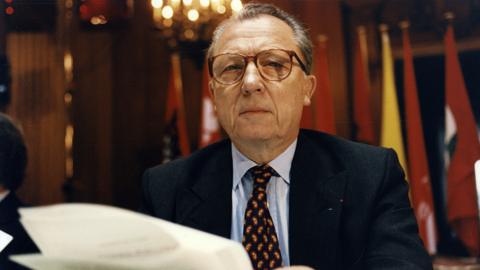Over 200 active chemicals used in human medications are listed on the EU’s list, which is updated annually to guarantee a safe supply of medications.

Brussels – Antibiotics like amoxicillin, insulin, anxiolytics like diazepam, and immunisations against common diseases are among the medications that are commonly used. These are just a few of the more than 200 active chemicals used in human medications that are included in the European Union’s first list of “critical” drugs, which was released today (Dec. 12) and was compiled by the European Commission, the European Medicines Agency, and the presidents of member state medicine agencies.
One of the main tenets of the new European Health Union, which was established in the wake of the Covid-19 health crisis, has been the list of essential medications to improve the security of the drug supply in Europe. This list has been anticipated for months. According to a statement from Brussels, a medication is deemed “critical” when it is necessary to guarantee both the availability and continuity of high-quality medical care as well as a high standard of public health protection throughout Europe. The list, which was created in collaboration with the European Medicines Agency and every EU member state using a criticality assessment methodology, is subject to annual updates by the Commission.
EU standard revision
The pharmaceutical strategy was updated in April of last year in Brussels, marking the first significant overhaul in over 20 years (the last legislation was passed in 2004). The new legislative framework prioritises affordable medicine access, pharmaceutical industry innovation, and industry sustainability. It also includes measures to prevent drug shortages and antibiotic resistance. The European Commission aimed to make it more mandatory for businesses to disclose medicine shortages and withdrawals ahead of time, as well as to create and maintain measures to avert shortages.
Additionally, the Commission has stated that it will work to compile a list of medications that will be deemed “critical” at the European level as part of the joint task force on the availability of medications authorised for use in humans and animals as part of this new pharma legislation. The list’s goal is to help guarantee that the most vital medications for the Union’s health systems are always available.

It passed a statement at the end of October that addressed drug shortages and announced a number of steps to better prevent and mitigate any shortages in the EU by encouraging the adoption of a voluntary European solidarity mechanism for medicines in the event of a supply crisis.
Stella Kyriakides, Commissioner for Health and Food Safety, states that “a strong European Health Union requires an uninterrupted supply of essential medicines.” “We are fulfilling our commitment to expedite work in this area and to take all necessary precautions to avoid the risk of shortages for our citizens with the release of the Union’s first list of important medications today. The European Medicines Agency and the agencies of the member states have my sincere gratitude for their assistance in compiling this list and for their vital role in averting drug shortages within our Union.
The pharmaceutical sector in Europe supports 800,000 jobs. However, in the acute phase of the pandemic, the industry found itself ill-prepared to handle the situation and lacked sufficient drug production capacity, relying heavily on non-EU nations for the procurement of pharmaceutical raw materials. Brussels acknowledges in its strategy, which was unveiled two years ago, that it also needs to increase funding for research and innovation, especially through EU4Health and Horizon 2020, two initiatives aimed at bolstering the European healthcare system. According to the Executive, there should be more done to ensure that all people have access to the 60 new medications that are approved for sale in the EU each year.










